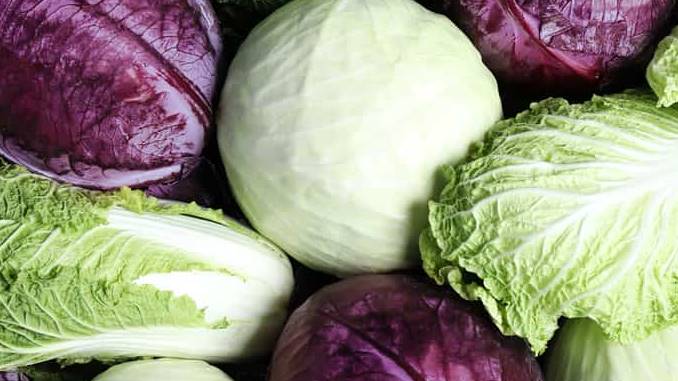Without blanching, cabbage can be kept frozen for around 8 weeks. This practice is highly recommended for those who plan to use cabbage within a short period of time. However, if you want to preserve it longer, blanching is a necessary step to take.
According to experts, the method you choose to store cabbage depends on when and how you want to consume it.
Can You Freeze Raw Cabbage Without Blanching It?
As said, raw cabbage can be stored in the freezer. However, it is crucial to emphasize that this measure is mainly applicable if you intend to cook the ingredient within a few weeks. Frozen raw cabbage cannot last in the freezer for more than eight weeks since it may quickly lose its quality and texture.
To freeze unblanched leaves, you need to wash them carefully, then decide whether you prefer saving them as slices, shreds, or a whole.
If you want to place the entire thing in your freezer, do not forget to soak it in water with a bit of salt for some hours prior to the next step. After preparing it according to your needs, lay it on a baking sheet and let it stay in the freezer for about 6 or 8 hours.
The waiting time may be some hours longer in case you try freezing the whole cabbage. Then, when you finish the flash freeze, carefully seal them in a heavy-duty freezer bag or an airtight container. It is suggested that you should use them up within a few weeks.
If you have bought a ton of cabbages for sale, take some minutes to boil them in water for approximately 90 seconds. This blanching technique to prepare for the freeze can be helpful as you may not be able to consume all those veggies promptly.
Can You Freeze Shredded Cabbage?
Yes, certainly. This method is rather convenient because you can take advantage of its shape to make some pasta or stir-fries immediately. Also, it is pretty simple to get them pieces frozen. It is up to you to decide whether to blanch or not to blanch it before storage.
One small tip that helps maintain its freshness is to press out all the air from your freezer bag or use an airtight container. Shredded cabbage is no longer tasty if it encounters freezer burn. Thus, it would be helpful if you sealed the bag tightly to avoid any air exposure.
Can Cabbage Be Frozen After It Is Cooked?
Cooked cabbage can be preserved in the freezer for 3 to 5 months. You can choose to split the leftover into smaller portions or save them as a whole for future use.
Freezing cooked one does not require a lot of preparation. Nevertheless, remember to let your food cool down before transferring it into any zip-log bag or container. If you forget to do so, your cooked cabbage may no longer be edible.
Does Freezing Cabbage Make It Tough?
Not really. The freezing process alters the cabbage’s original structure into an elastic one. Thus, it is less likely that you can break or crack the leaves when utilizing them for dishes such as cabbage rolls.
Frozen cabbage should be thawed carefully before being used to make cabbage rolls or coleslaw. Yet if you only cook soups or casseroles in which everything blends, it is not necessary to defrost cabbage in advance.
What Happens If You Do Not Blanch A Vegetable Before Freezing It?
There are several reasons why professionals suggest blanching first, then freezing later. Blanching, indeed, efficiently secures vegetables’ vivid colors, texture, and flavors. Therefore, if you miss the blanching step, you may notice some dulled colorings on veggies. For example, your frozen broccoli cannot retain its bright greenness as well as crispy texture.
Moreover, research has shown that this practice plays a vital role in protecting the vitamins and nutrients in vegetables. Also, the boiling temperature helps to destroy microorganisms, making it safer to consume vegetables. In addition, there is a high possibility that several enzymes in veggies that work to support your digestion better may be spoiled or leaked when frozen without blanching.
Hence, if you want to save all essential vitamins in your vegetables, it is highly advised that you spend a moment blanching them prior to storage. Besides, blanching usually softens vegetables, thus presenting you with some more space to place other food in the freezer.
Nevertheless, experts conclude that certain vegetables including but not limited to potatoes, tomatoes, and winter squash, do not need blanching before freezing. Thus, you should wisely choose the most suitable technique to freeze veggies adequately based on their characteristics.

